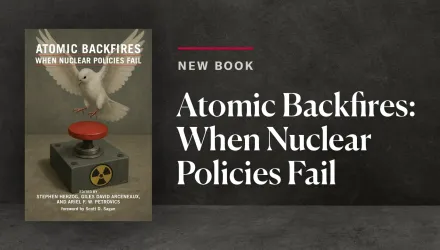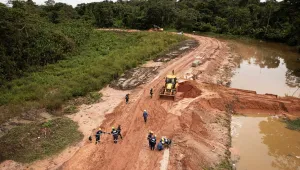VLADIMIR PUTIN has broken all the rules of geopolitics in Ukraine over the last five months. He finally had to pay for his actions this week. The coordinated list of tougher financial, military, and energy sanctions announced by the United States and European Union is a potential turning point. But is it enough to convince Putin to turn back from his determination to split Ukraine effectively in two?
After months of hesitation, Germany’s Angela Merkel and other European leaders finally awoke from their deep slumber in agreeing with President Obama to impose stronger economic sanctions on Russia. Their aim is to raise the costs of Putin’s campaign to divide, destabilize, and diminish Ukraine as a free nation state in the heart of Europe. This is the first significant pushback by the West against the Kremlin since the Ukraine crisis began.
Putin’s actions, ignored or even excused by too many West Europeans until now, have clashed with every important principle upon which the NATO Alliance is based. He invaded the territory of a sovereign European state. He then formally — and illegally — annexed Crimea. He has since waged a relentless war to destabilize eastern Ukraine by mobilizing and supplying an army of pro-Russia separatists that has brought chaos and violence to the region. He gave that army sophisticated weapons such as the SA-11 rocket system that almost certainly brought down the Malaysian civil airliner, killing 298 people. That act illustrated the depravity of the rebels and their Kremlin patron.
The White House, however, believes Putin has rushed more arms to the separatists since the shoot-down and that the Russian military has even fired from inside Russia on the Ukrainian government forces trying to defend their own territory. Washington also accuses the Russians of stationing thousands of troops on the border to intimidate Ukraine or prepare to invade should pro-Russia rebels continue to lose ground.
Obama and the European leadership have chosen the right instrument to respond to Putin’s aggression. Confronting him with the threat of military force makes no sense in the nuclear age. But sanctions designed to isolate Russia economically and discourage international investment will hurt Putin where he is most vulnerable — the Russian economy. Russia requires economic integration with the West to be successful. It depends on capital investment, manufactured imports from Germany, and the vast European market for its own gas exports in order to sustain its economy and middle class. It was telling that Russia chose not to hit back with retaliatory sanctions against the United States and Europe this week. Moscow knows it could not win in a war of competing sanctions.
That is why it is so important that Obama, Merkel, and other Western leaders keep up the pressure on Putin now that they have his full attention. They should line up much more aggressive sanctions against the Russian economy if Putin goes even further in his battle against the Ukrainian government.
The West, for example, should agree on stronger financial sanctions and a total arms embargo against Russia. It is simply ludicrous that France has not yet renounced the sale of the two Mistral warships being built for the Russian Navy. The United States should expand significantly its military assistance to the Ukrainian army, including helping it to locate the Russian-supplied rocket launchers that pose a direct threat to the Ukrainian air force. NATO should also move at its September summit in Wales to push laggards Germany, Spain, Italy, and the Netherlands to raise defense spending from their present paltry base. NATO must reaffirm its defense commitments for front-line allies who know the Soviet reality all too well — Estonia, Latvia, Lithuania, Poland, and Romania.
Putin’s assault on Ukraine matters to the United States and the Europe we helped to recreate at the end of the Cold War. We want to preserve a Europe where each of its democracies can choose its future. We want to prevent Putin from drawing new dividing lines between East and West. We want to champion a Europe that, in the words of President George H.W. Bush, remains “whole, free, and at peace.” By standing up to Putin now, we may yet preserve the democratic peace that is the key strategic benefit of our alliance with Europe.
Burns, Nicholas. “Stronger sanctions are needed to stop Putin.” The Boston Globe, July 31, 2014





